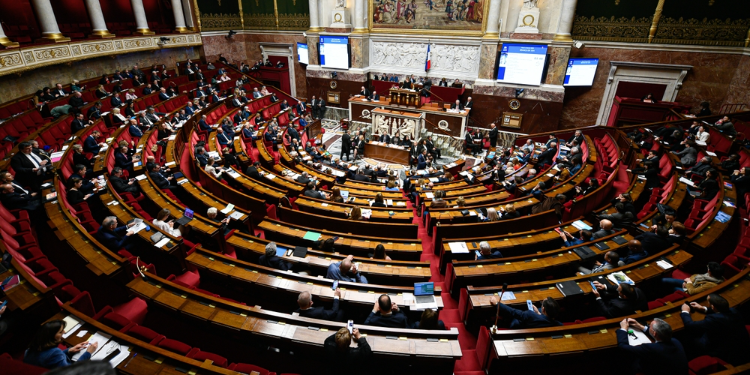
Surprising results in the European elections. Unexpected statement from President Macron. A swift campaign amidst summer holiday plans and the Olympics. Another surprise was the Left's victory in the anticipated legislative elections. The past few weeks in France have been full of twists and uncertainties. Will the outlook finally become clearer? As the first speeches and negotiations unfold, let's review the elections and the reactions from expatriates. What will the new face of French immigration policy look like?
Victory of the New Popular Front, Victory of the Republican Front
The first round of the legislative elections saw the far-right National Rally (RN) leading, followed by the New Popular Front (NFP). After a tumultuous week of calls for mobilization, the results gave victory to the left-wing parties, united under the NFP banner. The Left and the republican right, represented by the Ensemble group (the presidential party and its centrist and center-right allies) and the Republicans (LR), who did not ally with the RN, had openly called for a republican front. This call was heeded, with participation reaching 67.1%, the highest since 1997.
According to the final results, the NFP won 178 seats. They lead Ensemble (150 seats) and the RN (125 seats). The Republicans, who refused to form an alliance with the RN – despite LR president Eric Ciotti unilaterally deciding on an LR/RN union – finished 4th with 39 seats. The far-right party thus comes in 3rd, far from its aspirations of an absolute majority. The respectable score of the Presidential Party also comes as a surprise. The Ensemble group manages to salvage the situation.
However, the celebration was short-lived. The Left, aware of not having an absolute majority, calls for unity. "Live up to the voters' expectations" and "engage in dialogue," emphasizes Raphaël Glucksmann, the European Socialist MP responsible for the Socialist Party's (PS) resurgence in the recent European elections. Meanwhile, the RN, far from conceding defeat, is gearing up for the 2027 Presidential elections. According to Marine Le Pen, RN leader, her party's victory is merely postponed. Despite not achieving a massive wave, the RN made significant improvements, achieving its best legislative result.
First reactions from French citizens living abroad and expats in France
The French elections, analyzed by international media, are being described as a "French miracle" or viewed with skepticism regarding the NFP's program and the ambitions of Jean-Luc Mélenchon, leader of the far-left France Insoumise party. One thing is clear: the rise of the far-right in France has not significantly influenced the votes of French expatriates. Expats in France are divided between relief and concern.
French overseas citizens: Strong performance by the Presidential majority
A record turnout was observed among French expatriates. The first round already saw unprecedented participation, with 410,000 online votes recorded compared to 250,000 in the previous 2022 election. The second round confirmed this strong engagement, with 37.69% participation, almost 13 points higher than in 2022.
Unlike voters in France, French expatriates did not place the RN at the forefront in the first round of the legislative elections. While the party garnered 33% of the vote in France, it lost in all 11 constituencies for French citizens abroad. No far-right candidate advanced to the second round. The main contests were between the Nouveau Front Populaire and the Ensemble group. French expatriates had predominantly voted for Macron in 2017 and 2022.
Expatriates renew support for the Presidential majority
Legislative election results confirm that French expatriates have once again voted for the Presidential Party. While the left led in France, the Ensemble group was victorious abroad. Most of the MPs representing French expatriates retained their positions (10 out of 11 constituencies). Only the 9th constituency, already leaning left, re-elected its ecologist MP Karim Ben Sheikh, affiliated with the Nouveau Front Populaire.
However, observations indicate that despite being defeated in the first round, the far-right has made gains in some constituencies. This is evident in North America (1st constituency), where voters were more concerned with tax issues than immigration, the RN's primary focus. Ultimately, they re-elected Roland Lescure (54.25% of the vote) from the presidential majority, who significantly outpaced Oussama Lairachi, the left-wing candidate (45.75%). Although French expats in Canada leaned more toward the left, their votes were insufficient to swing the constituency. West Africa and the Maghreb (9th constituency) were the only regions to vote predominantly for the left: Karim Ben Sheikh won overwhelmingly (74.71% of the vote), far surpassing his opponent Samira Djouadi, the presidential majority candidate (25.29%).
One issue that raised concerns among French expatriates was the RN's proposed restrictions for dual nationals. This sparked broader fears about the far-right's immigration policies.
Relief for expats in France
Many expatriates in France feel relieved, although they had apprehensions about the rapid legislative elections. The more optimistic expats hope to live in a more "peaceful" France, looking forward to the Olympics and celebrations. Others remain cautious, noting the lack of an absolute majority, with three main political blocs and the left slightly ahead. The presidential camp remains intact, and the National Rally is not conceding defeat.
What will the French immigration landscape be like?
The New Popular Front promises to repeal the controversial reform passed earlier this year. In contrast, the RN argued that the state needed to go further, proposing to end social benefits for expatriates if elected. The RN believes that immigration burdens state finances and largely contributes to rising unemployment, a view contradicted by the National Consultative Commission on Human Rights but influential among voters.
In a report published on June 27, the Commission highlighted the "neutral" impact of immigration on public finances but noted significant fears among a portion of the French electorate. In 2023, 60% of French citizens believed that "many immigrants come to France solely to take advantage of social protection." Following its unexpected victory, the left-wing alliance promised to unite both French citizens and foreign residents. The Left also vows to guarantee full birthright citizenship for children born in France (a right that had been challenged by the RN), facilitate visa access, improve the reception of foreign residents, and make the 10-year residence permit the standard title.
One voice is missing: that of President Emmanuel Macron. While his party did not suffer the expected defeat, it still faced setbacks. For now, Emmanuel Macron is waiting for the "structuring of the new National Assembly to make the necessary decisions."




















Comments